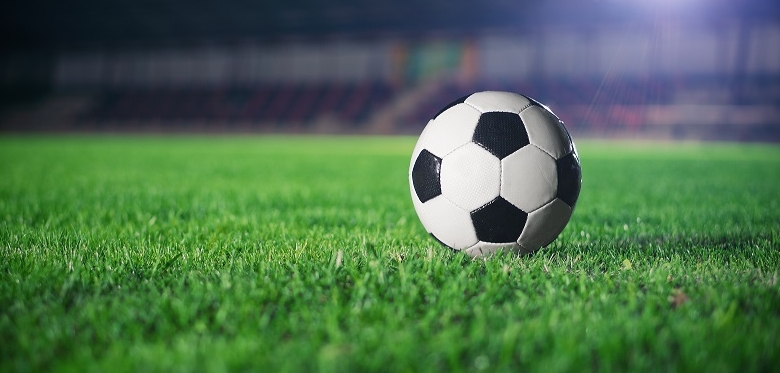Samir Nasri’s suspension from football for a doping violation has been increased significantly from four months to 18 months following an appeal by UEFA. This case should serve as a stark reminder to all sports professionals of the need to comply with the therapeutic use exemption (TUE) framework when seeking treatment for a medical condition.
The UEFA appeals body met on 17 July 2018 following an appeal lodged by the ethics and disciplinary inspector (the inspector) in relation to the sanction imposed on Samir Nasri (the player) following a breach of the UEFA Anti-Doping Regulations (the regulations).
At the time of the infringement, the player was playing football for Sevilla FC in La Liga. During the Christmas break in the season, the player had flown to Los Angeles with his family but had become ill on 26 December 2016. Dr. Sarajibt Ananda, a general surgeon, was called and visited the player in his hotel room. The player displayed as weak and sweating, suffering from vomiting and diarrhoea which had resulted in significant weight loss.
Dr Anand established a ‘plan of care’ prescribing an intravenous infusion of a sodium chloride solution. In general cases of treatment, Dr Anand confirmed that treatment would be given orally, but given the player’s imminent return to Europe that would be the most efficient treatment.
The ‘plan of care’ was administered by a company, Drip Doctors, who specialise in providing medical services at the location of patients. At 7.30pm, the player started to undergo the infusion of 500ml of sterile water containing micronutrient components. This would constitute a breach of the regulations (“the breach”), that being a prohibited method, as per the WADA Code. According to their report, the player’s temperature had reduced from 37.1°C, compared to 38.8°C during Dr Anand’s call, and was no longer vomiting. The player was said to be ‘feeling under the weather’ and suffered from pre-viral like symptoms and attempted to gain preventive health and immune system support.
It had become known via social media that the player had received an intravenous infusion on 26 December 2016, which had alerted the Spanish Agency for Health Protection in Sport (AEPSAD). AEPSAD had contacted Sevilla FC and requested more information from them. On 30 December 2018, the general manager of Sevilla FC informed AEPSAD that the player had declared that he had taken two infusions of no more than 50ml each in an interval of more than six hours.
On 21 January 2017, following discussions with the Head of Medical Services at Sevilla FC, an application for a retroactive TUE for the intravenous infusion the player had received on 26 December 2016, which was refused by the TUE committee. The player subsequently appealed to the UEFA Control, Ethics and Disciplinary Body (CEDB) and requested that a final decision be on the refusal to grant the TUE be made by the Court for Arbitration for Sport (CAS).
CAS took into consideration submissions from both the player and UEFA. In evidence, the player accepted that he had received an intravenous infusion of 500ml which would constitute a prohibited method under the WADA Code. The player delivered no explanation regarding his original declaration of having taken two infusions of no more than 50ml.
The player’s argument was solely on the basis that the TUE should have been authorised as all of the conditions for a retroactive TUE were met. It was submitted that given the player’s condition, he was unable to discuss or agree with the legitimacy of the treatment specified by Dr Anand. It was asserted that the treatment was for an acute medical condition and this was the most efficient form of treatment; with it being impossible for him to return to Europe from Los Angeles on a 15 hour flight. It was submitted that the treatment was ‘harmless’ and ‘absolutely unable to enhance his performance and had the only scope of rehydrating him…’
In summary, CAS concluded that the player had not satisfied each of the conditions for obtaining a retroactive TUE and upheld the original decision. The determination stated that it was the player’s responsibility as an athlete to determine the treatment to be received, the player could not simply rely upon the decision of Dr Anand. The medical evidence available did not evidence an acute medical condition or that it was an emergency situation with no reasonable alternative treatment. Therefore, the player had not met each of the requirements for a retroactive TUE.
The issue of sanction had previously been considered by the CEDB on 22 February 2018. The CEDB originally suspended the player for a period of six months. On appeal, the inspector invited the appeals body to increase the period of suspension from a period of six months to two years, having regard to the particular circumstances of the case.
The player entered into formal negotiations with the WADA,the French Anti-Doping Agency Agence Francaise de Lutte contre le Dopage (AFLD) and the inspector. Following those discussions, an agreed outcome for the appropriate disciplinary sanction, namely an increase of the suspension period to 18 months, was submitted to the chairman of the appeals body who rendered a decision on this request. Therefore, the period of suspension will run for 18 months from the 1 July 2017, with the Player able to return to training on 1 November 2018.
If you require advice regarding compliance with anti-doping regulations or you are concerned about a potential violation, please feel free to contact our specialist lawyers, in confidence, on 01616 966 229. Alternatively please complete our enquiry form and a member of our team will contact you.



Comments